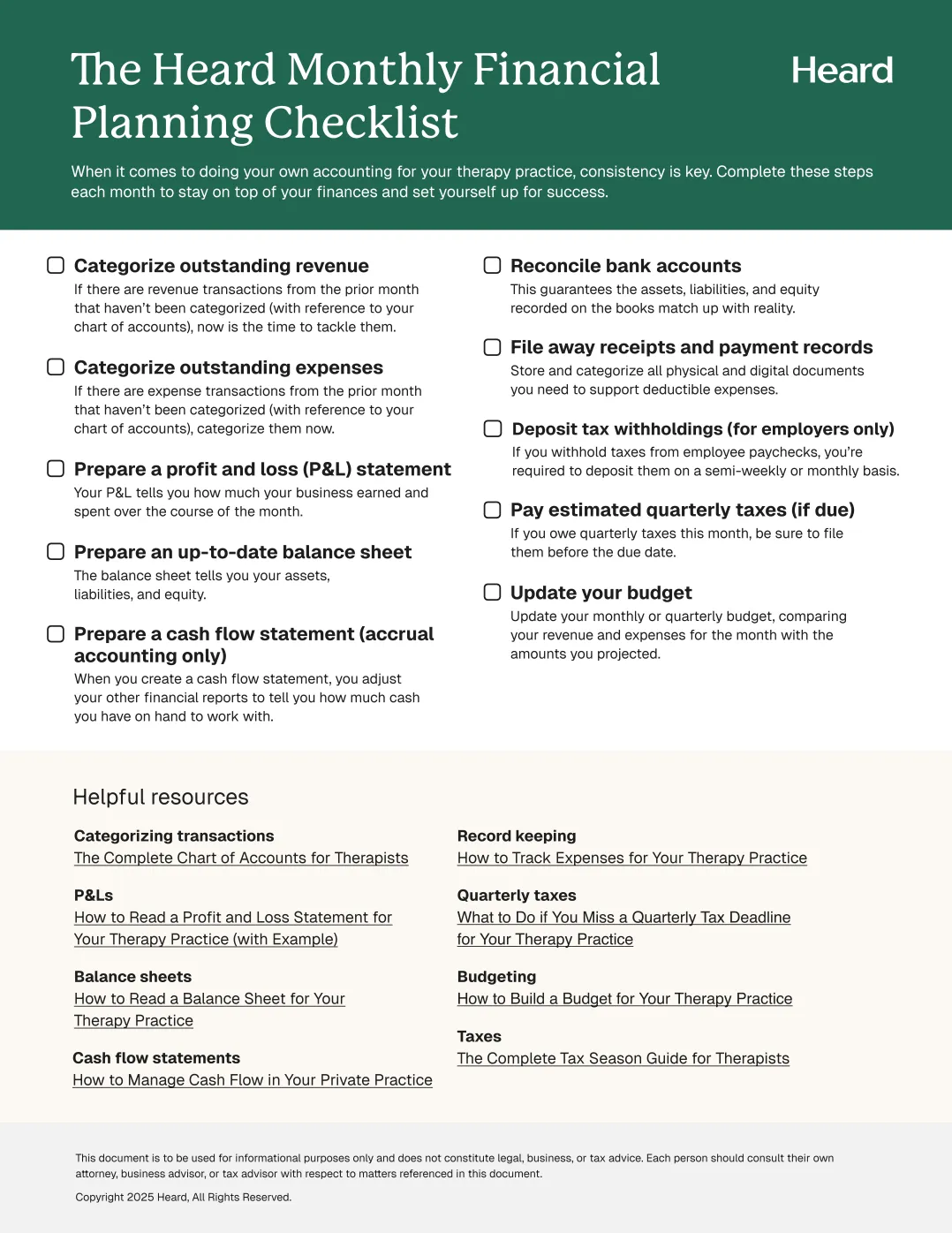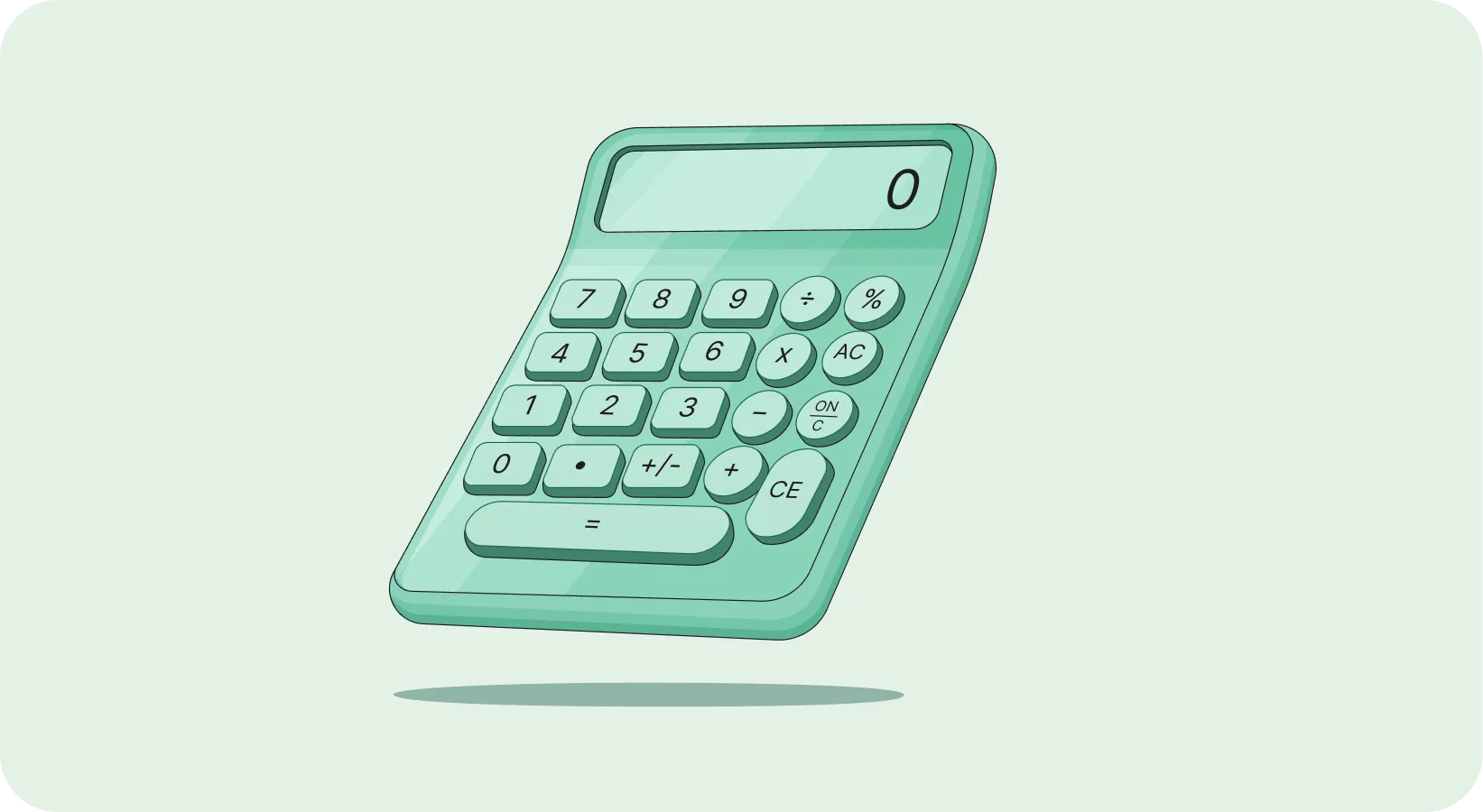Whether you have a Ph.D., Psy.D., MFT, MSW, or another clinical degree, chances are that your financial education in graduate school was rather limited.
Now, as a licensed therapist, there’s a high likelihood that, with your nose to the grindstone and focus on your new clients and growing caseload, you have little to no time to even think about financial reporting or reconciling your expenses.
{{resource}}
Responsibilities of a bookkeeper
This is where a bookkeeper comes in handy. Put simply, the job of a bookkeeper is to maintain a financial record of a business’ transactions, recording all incoming profits and outgoing costs.
For a private practice therapist, passing off bookkeeping tasks to a trustworthy third party can free up valuable time that can instead be spent focusing on your business.
On a day to day basis, the responsibilities and tasks of a bookkeeper can include the following:
- Keeping a ledger of all monetary transactions
- Drafting financial records (including profit and loss statements, balance statements, cash flow statements, and statements of retained earnings)
- Tracking your budgeting and spending against quarterly or annual budgets
- Flagging inconsistencies in your financial records
- Reconciling expenses and verifying receipts
- Managing accounts payable (bills you owe) and accounts receivable (bills you are owed) documents
- Invoicing clients and conducting payroll, as needed
Hiring a bookkeeper for your therapy practice
Having someone to track the above tasks can help immensely to understand the flow of your caseload and business as a whole, while ensuring that your practice is profitable and your records are audit-proof.
Hiring a dedicated party to alleviate the financial aspects of your business will not only allow you to focus more on your clients, but will also set you at ease heading into tax season. Heard connects you with a team that is well-versed in bookkeeping services, but one that also has expertise working with private practice therapists like you.
At Heard, we understand the importance and integrity of your practice, and we’ll give you financial support that matches it.
—
Want to know the difference between an accountant and bookkeeper? Check out our article.
Heard is a bookkeeping and tax platform for therapists, intended to ease the financial burdens of mental health therapy services and track the financial health of your practice. Schedule your free, 15-minute consultation.
This post is to be used for informational purposes only and does not constitute legal, business, or tax advice. Each person should consult their own attorney, business advisor, or tax advisor with respect to matters referenced in this post.
{{cta}}
Manage your bookkeeping, taxes, and payroll—all in one place.

Discover more. Get our newsletter.
Get free articles, guides, and tools developed by our experts to help you understand and manage your private practice finances.
Each month, Heard sends you a detailed report containing your profit and loss and cash flow statement for the prior month. Schedule a free consult to learn more.
Schedule a free consult




